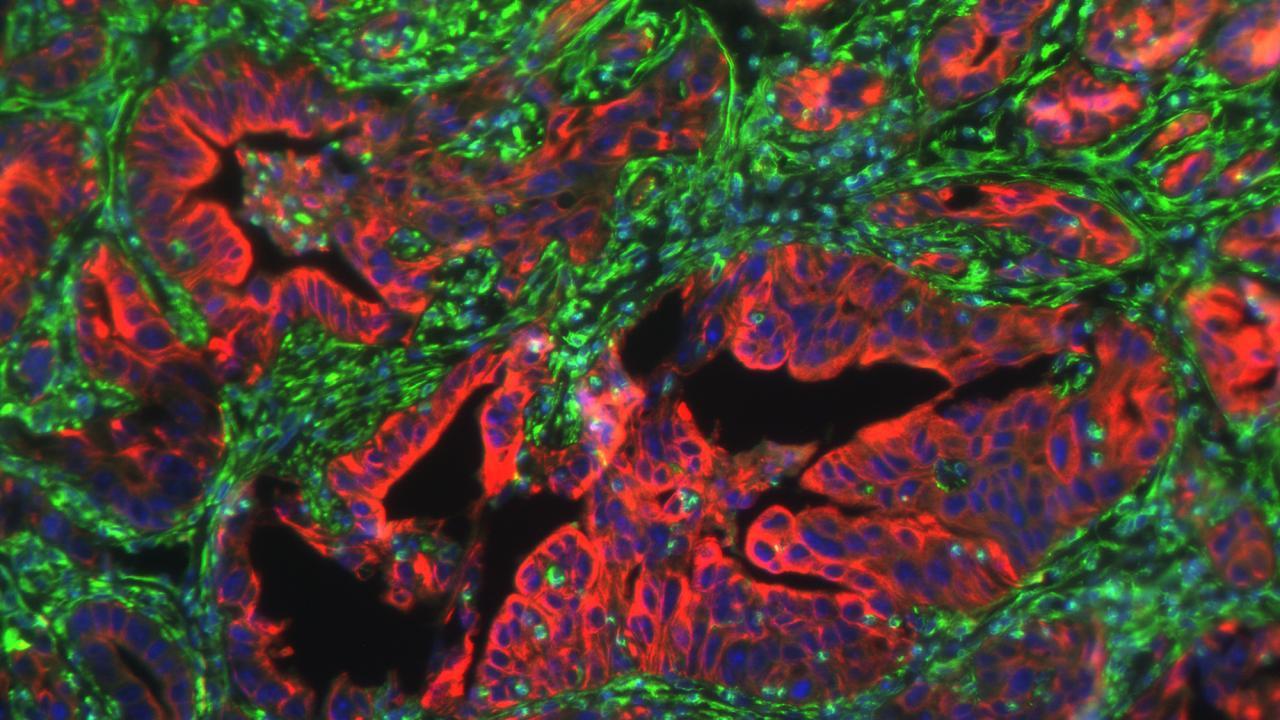
New Findings Shed Light on Pancreatic Cancer Treatment Targets
Researchers have identified a protein that causes metastasis in pancreatic cancer—and a possible drug target to help treat the notoriously challenging disease
Pancreatic cancer is the third leading cause of cancer-related deaths in the United States and only 12% of patients survive five years after being diagnosed. Severe pancreatic cancer is associated with metastasis, and it is this spread of secondary tumors that usually causes death, but little is known about the molecular mechanisms that drive metastasis.
In a new study published Dec. 18 in Advanced Science, researchers from the Department of Microbiology and Molecular Genetics showed that abnormal expression of the protein Engrailed-1 (EN1) promotes pancreatic cancer progression and metastasis in vitro and in mouse models. The team also found that elevated EN1 was associated with severe, metastatic pancreatic cancer in human patients, which suggests that EN1 might make a good potential target for pancreatic cancer therapies.
“We identified a novel epigenetic factor that can contribute to metastasis in pancreatic cancer, which is one of the most challenging cancers to treat,” says Chang-Il Hwang, an assistant professor in the Department of Microbiology and Molecular Genetics and a senior author on the paper. “A better understanding of these mechanisms would allow us to identify potential targets and improve patient survival.”
Read the full story here.
